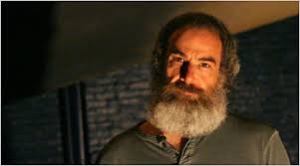The Why: Why do I watch Criminal Minds and why do other people watch Criminal Minds?
Let’s start with me. I started watching Criminal Minds when I was in eighth grade—a little bit younger than the recommended age to watch such a violent show (oops). It was on TV while I was doing my homework in my kitchen and instantly caught my attention. The brilliant criminals intrigued me and I wanted to be like the young, attractive FBI agents who always managed to outsmart them.
Why did the killers kill? I wanted to know so badly. Most of the serial killers in the show came from broken families and abusive childhoods, so a big part of me wanted to attribute their behavior to the environment in which they grew up. But I’ve known plenty of people who grew up in less than ideal situations—divorced parents, deceased family members, abusive homes, and they don’t go around killing people. So maybe these remorseless criminals kill because their brains are just wired differently than individuals who refrain from killing. Is it nature or nurture that turns people into serial killers, or a mix of both? Probably the latter, but I don’t want to turn this into a nature vs. nurture conversation. But debate aside, wondering why killers kill played a large part in my continued interest in the show. While my infatuation with the criminals never faded, my interest in how the agents managed to catch the killers grew. How did they catch these meticulous killers time and time again? I loved being taken through the process of analyzing the crime scene, studying victims, profiling the unsub, and reaching a conclusion.
Despite my unending support for Criminal Minds, it does not receive all positive reviews, even from its star actors. Mandy Patinkin, who once stole the show for how deeply he cared about the victims and his constant desire to find out why events happened as they did, abruptly quit in 2007: “The biggest public mistake I ever made was to choose to do Criminal Minds in the first place” Patinkin expressed, “I thought it was something very different… It was very destructive to my soul and my personality.” Patinkin basically believes that Criminal Minds’ only purpose revolves around captivating viewers with violence. Those who oppose Patinkin, people like me, instead see the show as a psychological thriller; we watch as brilliant agents outsmart criminals who are often even more brilliant.
Once I discovered Patinkin’s distaste for the show, I decided to do a little more digging. One article in particular caught my attention: American TV’s love affair with serial killers. In it, the author (Ellen Gray) essentially discusses the American peoples’ obsession with crime shows. About Criminal Minds in particular she writes, “I’ve never had much use for shows like CBS’ Criminal Minds, which traffic in our darkest fears in less interesting ways” When she says “less interesting,” she compares Criminal Minds to shows like American Horror Story and Sons of Anarchy.
Ellen Gray made me think: Criminal Minds really doesn’t have much depth. Sure, some people like the violence while some despise it, but other than that the show is pretty simple— a murder happens, FBI intervenes, criminal loses. But what if each episode had a punishment phase? What if after the arrest there was a trial that would decide the serial killers fate? Once life in prison and capital punishment enter the realm of a TV show, debate will inevitably follow. I bet that would make it more interesting.
Read more: What if Criminal Minds was an hour?
Despite the not so perfect reviews, I will continue to be an avid Criminal Minds supporter. Fortunately for me and all the other Criminal Minds addicts out there, the show brought in 11.96 million live viewers for the season finale last year, so I don’t think it’s going anywhere any time soon.
